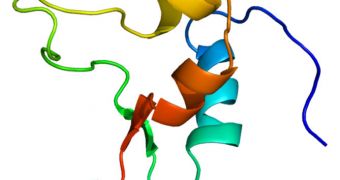Developing a way of enhancing people's memory would be a tremendous achievement, and a team of investigators believes that this may become as simple as taking a pill. The treatment is expected to be made available within the next few years.
A team of scientists has found that rat animal models which were injected with a particular hormone proved capable of remembering significantly better than their peers, even after two weeks had passed since the memory was originally formed.
For this study, experts at the Mount Sinai School of Medicine in New York, conducted by lead researcher Cristina Alberini, used the chemical called IGF2. This hormone plays a critical role in the early development of the human brain.
This chemical, called insulin-like growth factor 2, is still a mystery to scientists from several perspectives. Understanding its mechanisms of action could reveal methods of using it to enhance our memory, the research team adds.
Such an achievement could prove top be extremely beneficial to individuals suffering from forms of dementia such as Alzheimer's, as well as other neurodegenerative diseases, LiveScience reports.
“Understanding memory mechanisms - by that, I mean how memories are formed – we can get important information for potentially thinking about mechanisms and targets of memory impairment,” Alberini explains.
She adds that her team now plans to look at the effects that the chemical has “in memory disease models, like Alzheimer's, stroke and aging.” At this point, the team believes that the stuff works by altering the way memories are formed.
The memory-creation process takes place in the hippocampus, an area of the cortex that is responsible for memory formation, and for changing short-term memories into long-term ones.
When IGF2 was inserted into rats' brains, the memory-forming processes got a boost, and the animals were able to remember things better even after two weeks. The effects of IGF2 are very interesting, since most other hormones damage memory formation, rather than boost it.
“Enhancement is rare. Most of the time when you manipulate memory, you cause deficits; it's easier to damage things than improve them,” explains University of California in Los Angeles (UCLA) memory researcher Alcino Silva.
“It's really amazing; I think we are on the verge of having the essential building blocks of how memories are made in the hippocampus,” adds the expert, who was not a part of the new study.
Details of the recent investigation appear in the January 27 issue of the esteemed scientific journal Nature.

 14 DAY TRIAL //
14 DAY TRIAL //